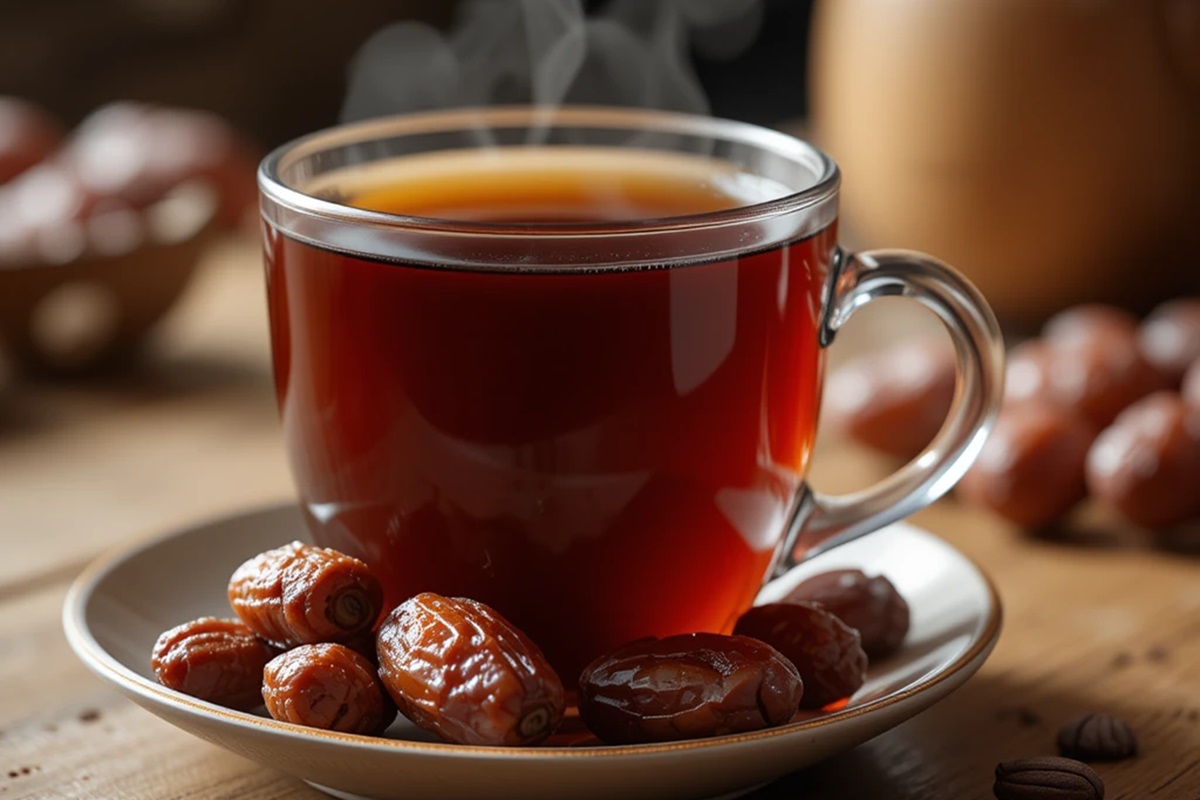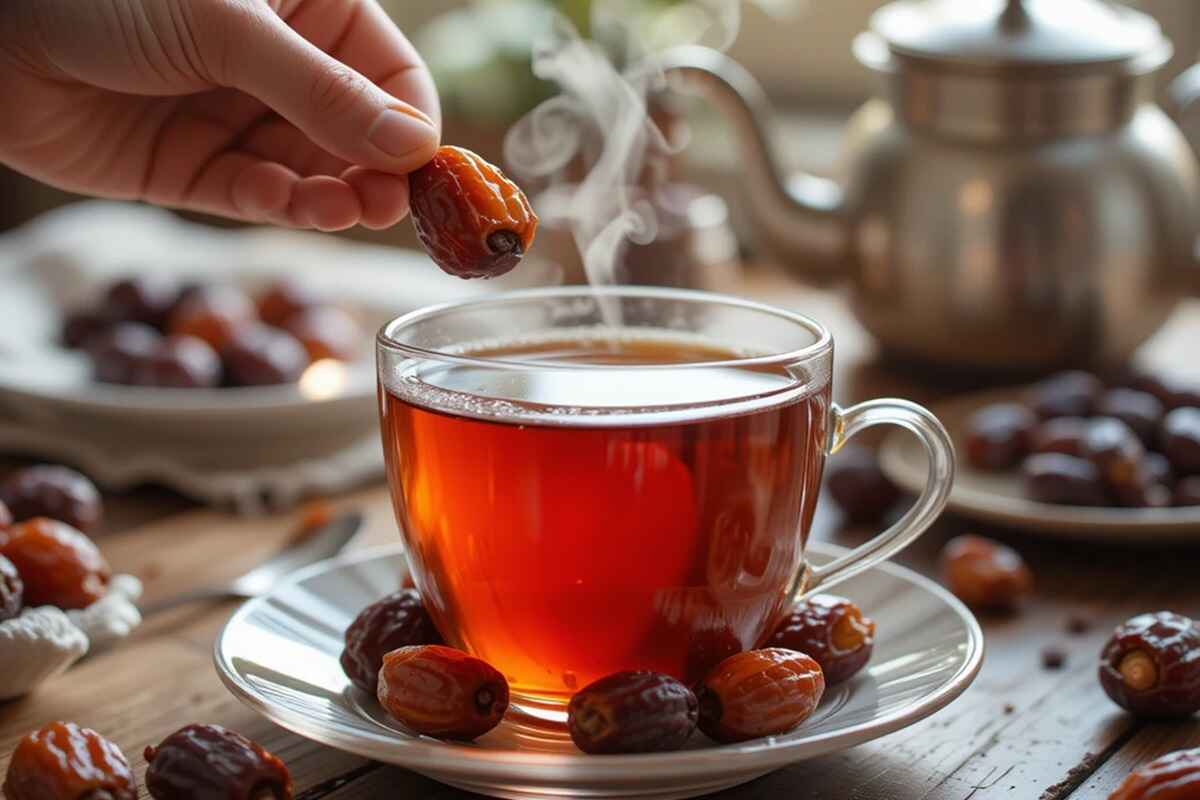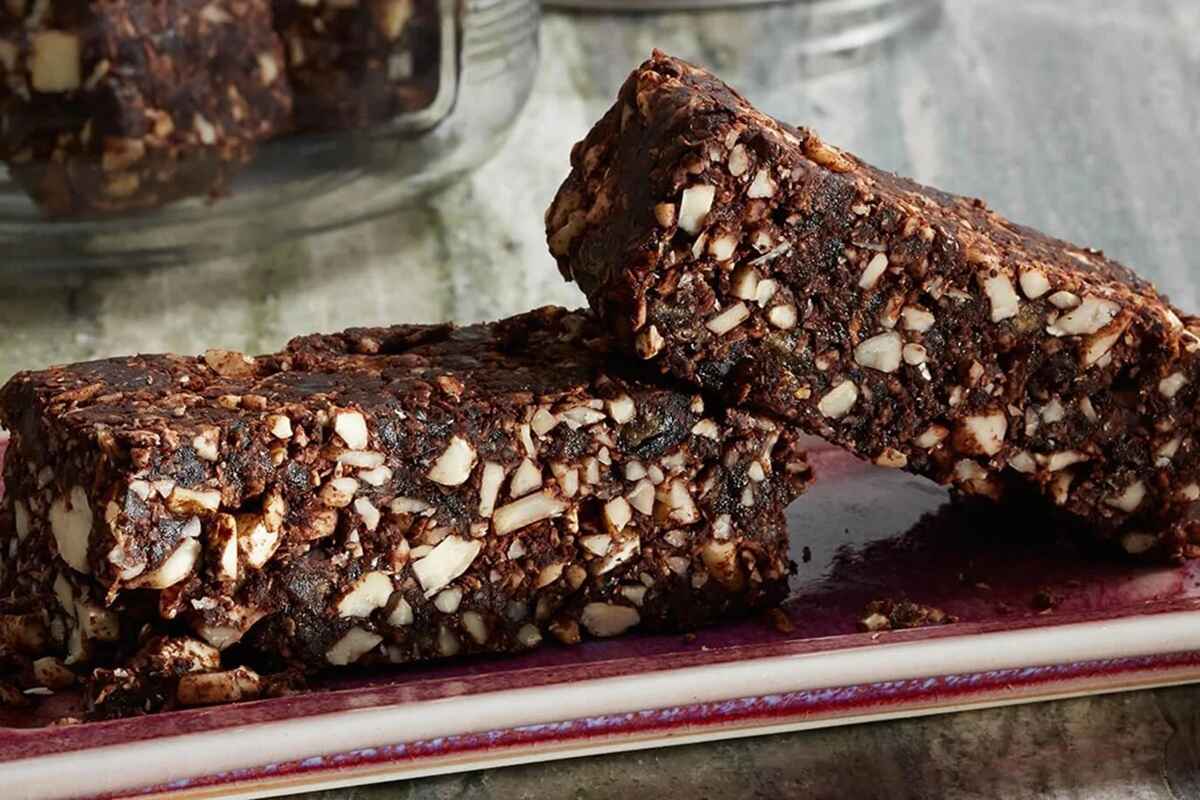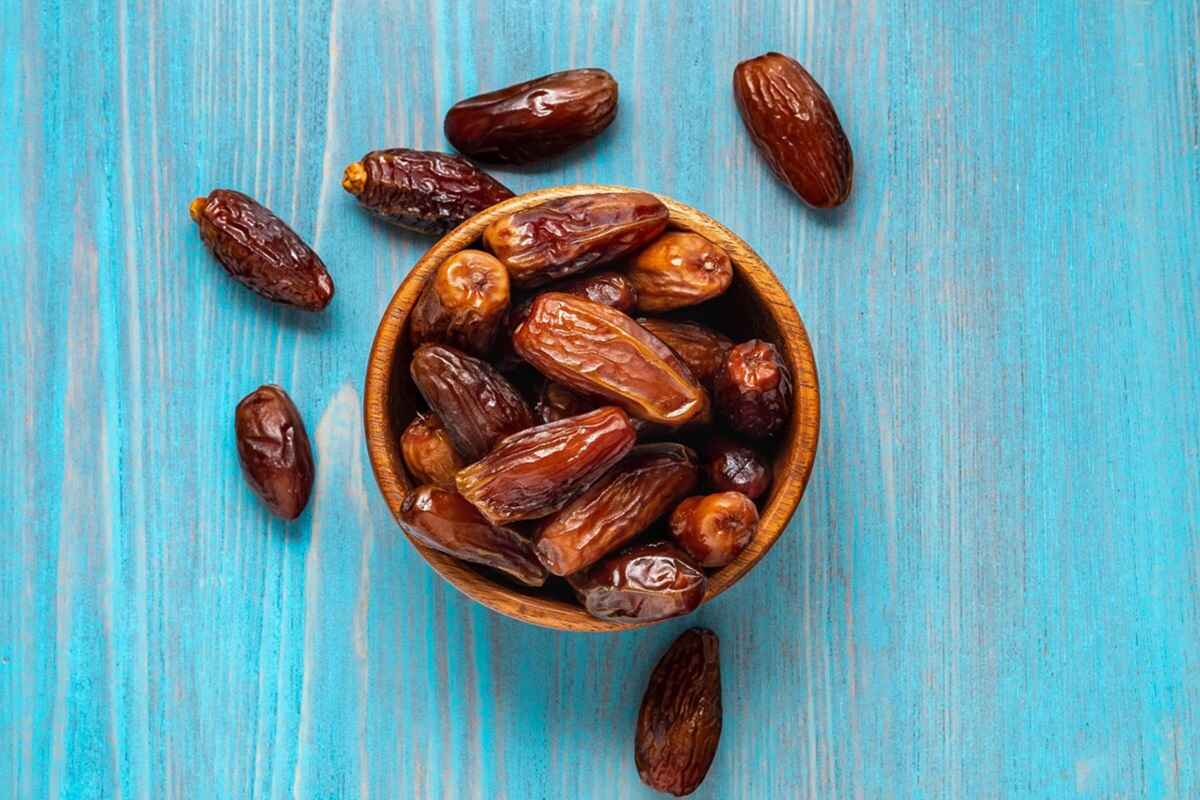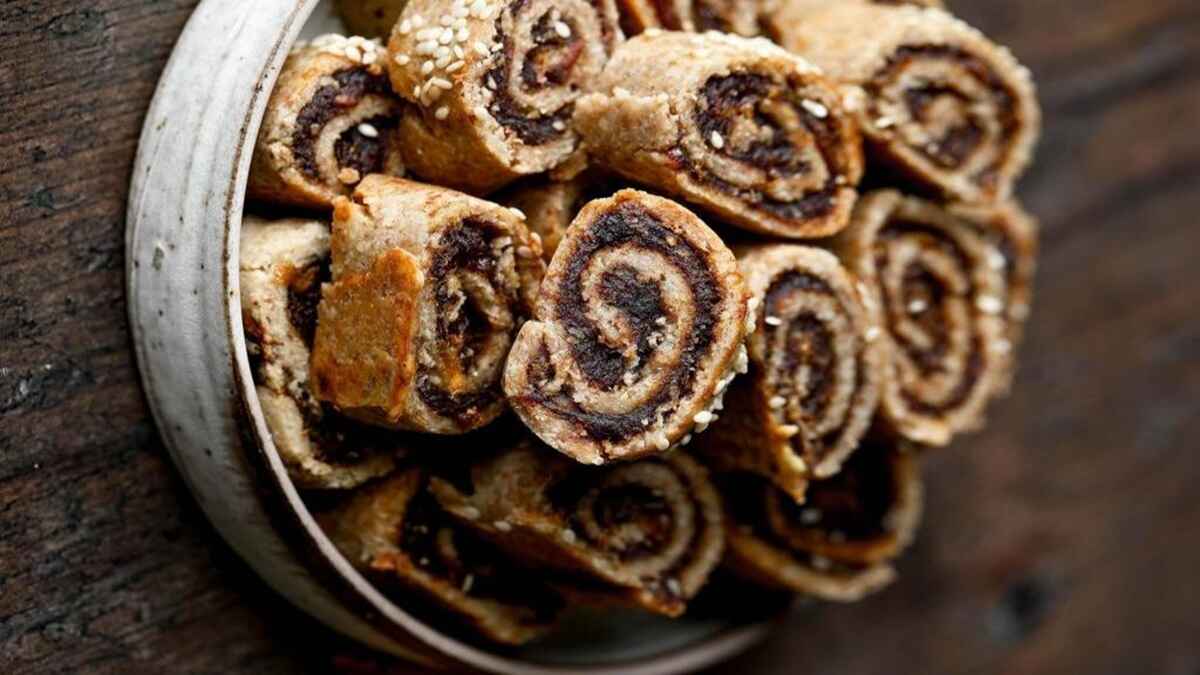Eating Dates with Tea is a timeless tradition that combines simplicity with comfort. There’s something magical about the way the natural sweetness of dates melts in your mouth alongside a warm, fragrant cup of tea. This pairing has been cherished for centuries, especially in Middle Eastern cultures, not just for its delightful taste but also for the moments of calm and connection it brings to everyday life.
Whether it’s a quiet afternoon alone or a shared break with family and friends, eating dates with tea turns an ordinary moment into something special. To provide a thorough perspective, Persa Trading has examined all aspects of this topic, giving readers a complete guide to this beloved ritual.
Should we use wet dates with tea or dry dates?
When it comes to pairing dates with tea, one common question is whether to use fresh (wet) dates or dried dates. Both options have their own unique qualities, and the choice often depends on your taste preference, storage needs, and even health goals.
Dried dates, with their low moisture content, are remarkably long-lasting. This makes them an excellent option if you want to keep a supply on hand for months or even years. For instance, when stored properly in the fridge, dried dates can stay fresh for up to five years without losing their flavor or texture. Their firm consistency and concentrated sweetness also make them a popular choice for baking, cooking, or simply enjoying alongside a warm cup of tea.
On the other hand, fresh dates (like Iranian Muzafati dates) have a much shorter shelf life, typically ranging from one to four months, depending on storage conditions. They are softer, juicier, and have a more delicate flavor compared to dried dates. Because of their higher water content, fresh dates are often considered lighter and easier to digest, making them a great choice for those who want a refreshing snack.
From a nutritional perspective, the choice can also depend on your dietary goals. Fresh dates are often recommended for people who are looking to maintain or reduce their weight, as they are naturally sweet but less calorie-dense than dried dates. In contrast, dried dates are richer in calories and can provide a more concentrated source of energy, making them beneficial for those who are trying to gain weight or need an extra energy boost.
In summary, both wet and dry dates can complement your tea perfectly. The decision comes down to how long you want to store them, the flavor and texture you prefer, and your personal health goals. Whether soft and juicy or firm and sweet, enjoying dates with tea is always a simple yet delightful ritual.
Are Sweet and Dried Fruits a Better Alternative to Sugar in Tea?
Regardless of all the advertisements warning about the dangers of consuming sugar—ranging from risks of diabetes to Alzheimer’s—many of us, especially in Iran, are deeply accustomed to enjoying tea with something sweet on the side. This cultural habit is hard to break, but there are healthier alternatives that can satisfy your sweet tooth without the negative effects of refined sugar.
For example, a single spoon of sugar provides about 50 kcal of energy per kilogram of body weight. When compared to sweet dried fruits like dates or raisins, which generally provide about 23 kcal, the difference becomes significant. This shows how using natural sweeteners can reduce unnecessary calorie intake while still keeping your tea ritual enjoyable. That is why dates have become extremely popular worldwide, and dates wholesale is thriving.
Dried fruits, particularly dates, are packed with natural sugars, fiber, and essential nutrients. They not only add a pleasant sweetness to tea but also offer health benefits, such as improved digestion and a gradual release of energy. In essence, swapping refined sugar for dried fruits like dates, raisins, or berries can be a smart choice—letting you maintain the sweet flavor you love while making your tea breaks healthier and more satisfying.
The Potential Drawbacks of Eating Dates with Tea
While enjoying dates with tea is a beloved tradition, it’s important to be aware of some potential drawbacks that often go unnoticed. One key factor is the combination of hot drinks, like tea or coffee, with sugary or dried treats such as dates.
Contrary to what we might expect, not all the energy from these sweets is fully absorbed by the body when consumed alongside very hot beverages. The body primarily absorbs the sugars themselves, while other nutrients may not be utilized as efficiently. This means that although the ritual is enjoyable, the nutritional benefits of the dates can be partially diminished if consumed in excess with very hot drinks.
Moreover, habitual consumption of sugary foods with tea or coffee can have long-term health implications. Regular intake of these sugars can increase the risk of dental problems, elevate blood sugar levels, and, over time, contribute to conditions like diabetes. While dates are naturally healthier than refined sugar, moderation is still key, especially when paired with hot beverages.
Understanding these potential drawbacks doesn’t mean you need to give up the tradition; rather, it encourages mindful consumption—savoring the sweetness of dates with tea in a balanced way to enjoy both taste and health benefits.
Does Tea Affect the Nutritional Properties of Dates?
You may have come across the claim that drinking tea with dates can destroy their beneficial properties. The truth is a bit more nuanced. Dates are packed with nutrients, including vitamins, minerals, fiber, and antioxidants. While it’s true that drinking tea—especially very hot tea—at the same time as eating dates may slightly reduce the absorption of certain minerals, such as iron, this effect is relatively small. The iron content in dates represents only a fraction of their overall nutritional value.
In other words, while some minor reduction in nutrient absorption may occur, the vast majority of the health benefits of dates remain intact. They still provide natural sweetness, energy, fiber, and numerous essential nutrients. Compared to adding refined sugar to your tea—which can negatively impact blood sugar, dental health, and overall wellness—pairing tea with dates is undoubtedly a much healthier choice.
So, enjoy your tea with dates without worry. The combination not only tastes delicious but also retains most of the beneficial properties that make dates such a valuable and nourishing snack.
Which Dates Are Best to Enjoy with Tea?
If you want to enjoy dates with tea while keeping your calorie intake in check, there’s a simple trick: choose smaller dates. The size of the date you eat can make a noticeable difference in the amount of energy you consume with each bite.
Among the many varieties of dates available, Khasoui dates stand out as an excellent choice. Not only are they one of the smallest types of Iranian dates, but they are also incredibly flavorful and sweet. Their delicate size makes it easier to enjoy a few pieces with your tea without overloading on calories, while still savoring that rich, natural sweetness.
For those who haven’t tried Khasoui dates yet, exploring the different types can be a delightful experience. They are particularly well-suited for pairing with tea, especially when dried, as their texture and concentrated sweetness complement the warm beverage perfectly. Once you taste these dates alongside your favorite tea, there’s a good chance they will become a staple in your daily tea ritual.
